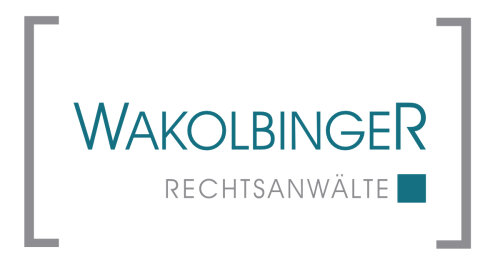Best Probate Lawyers in Austria
Share your needs with us, get contacted by law firms.
Free. Takes 2 min.
Or refine your search by selecting a city:
List of the best lawyers in Austria
About Probate Law in Austria
Probate in Austria involves the legal process of administering a deceased person's estate. This process ensures that debts are paid and the remaining assets are distributed to heirs or beneficiaries. Austria follows a civil law system, and intestate succession is governed by the Austrian Civil Code (Allgemeines Bürgerliches Gesetzbuch, ABGB). Probate typically involves court proceedings, especially if disputes arise or if the deceased did not leave a will. Testators can specify their heirs in a will, subject to certain legal restrictions such as statutory share entitlements.
Why You May Need a Lawyer
Individuals may find themselves in need of legal assistance in probate matters for several reasons. Common situations include:
- Disputes among heirs over the distribution of assets.
- Complex estates involving multiple jurisdictions or significant debt.
- Absence of clear documentation such as a will.
- The need to understand statutory entitlement rights.
- Challenges related to the valuation and transfer of assets.
In such scenarios, a lawyer can offer guidance, mediate conflicts, ensure compliance with legal requirements, and represent clients in court if necessary.
Local Laws Overview
The probate process in Austria is defined by local laws, including:
- The Austrian Civil Code (ABGB): Governs succession law and defines the statutory rights of heirs and testators.
- Statutory Shares: Certain family members, such as children and spouses, are entitled to a fixed portion of the estate, regardless of the will's contents.
- Notary's Role: In Austria, notaries play a crucial role as judicial commissioners in probate cases, managing the estate’s administrative tasks.
- European Succession Regulation: This EU regulation might apply, making it necessary to consider cross-border elements where non-Austrian residents or international assets are involved.
Frequently Asked Questions
What is a probate proceeding?
A probate proceeding is the legal process for administering the estate of someone who has passed away, ensuring debts are paid, and distributing remaining assets to rightful heirs.
Is a will necessary for probate in Austria?
While a will simplifies the succession process by clearly outlining the testator's wishes, probate can proceed without it. In such cases, Austrian intestate succession rules apply.
How long does probate take in Austria?
The duration of probate proceedings can vary significantly depending on the complexity of the estate. Simple cases might be resolved in a few months, while contested or complex estates could take years.
What is the role of a notary in the Austrian probate process?
A notary acts as a court commissioner, overseeing and facilitating the probate process, ensuring compliance with the law, and advising on legal matters related to the estate.
Can an heir refuse an inheritance in Austria?
Yes, an heir in Austria has the right to renounce their inheritance, a decision that must typically be declared within a three-month period after becoming aware of their entitlement.
What happens if there are debts in the estate?
The estate's assets will generally be used to settle outstanding debts before any distribution to heirs. Heirs are not personally responsible for debts beyond the estate's value.
Are there taxes on inheritance in Austria?
Austria does not impose inheritance tax, but there may be related expenses such as fees for legal services, notaries, and court charges.
How are foreign assets handled in Austrian probate?
Foreign assets might be subject to both Austrian law and the laws of the country where they are located. Legal assistance is often essential to navigate these complexities.
Can probate decisions be contested?
Yes, heirs or interested parties can contest decisions made during probate proceedings if they believe errors have occurred or if they have been unjustly treated.
How does the European Succession Regulation impact probate?
The regulation can apply to cross-border estates within the EU, allowing for the application of Austrian law to all assets if the deceased was habitually resident in Austria.
Additional Resources
For additional help or information regarding probate in Austria, consider reaching out to:
- Austrian Chamber of Civil Law Notaries: They provide guidance and resources regarding the notarial processes involved in probate.
- Ministry of Justice: Offers insights into legal processes and legislative changes in Austrian law.
- Local Probate Lawyers: Experts who specialize in handling probate cases and can provide personalized legal advice and representation.
Next Steps
If you require legal assistance in probate matters, consider taking the following steps:
- Assess your needs: Clearly understand what aspects of the probate process you need help with, such as drafting a will or resolving disputes.
- Gather documentation: Make sure you have all necessary documentation, including wills, asset records, and debts, ready for review.
- Consult a probate lawyer: Contact a lawyer specializing in probate for an initial consultation to discuss your needs and understand your legal options.
- Engage a notary: If your case involves complex estates or cross-border elements, a notary can provide valuable legal and procedural guidance.
Lawzana helps you find the best lawyers and law firms in Austria through a curated and pre-screened list of qualified legal professionals. Our platform offers rankings and detailed profiles of attorneys and law firms, allowing you to compare based on practice areas, including Probate, experience, and client feedback.
Each profile includes a description of the firm's areas of practice, client reviews, team members and partners, year of establishment, spoken languages, office locations, contact information, social media presence, and any published articles or resources. Most firms on our platform speak English and are experienced in both local and international legal matters.
Get a quote from top-rated law firms in Austria — quickly, securely, and without unnecessary hassle.
Disclaimer:
The information provided on this page is for general informational purposes only and does not constitute legal advice. While we strive to ensure the accuracy and relevance of the content, legal information may change over time, and interpretations of the law can vary. You should always consult with a qualified legal professional for advice specific to your situation.
We disclaim all liability for actions taken or not taken based on the content of this page. If you believe any information is incorrect or outdated, please contact us, and we will review and update it where appropriate.
Browse probate law firms by city in Austria
Refine your search by selecting a city.















